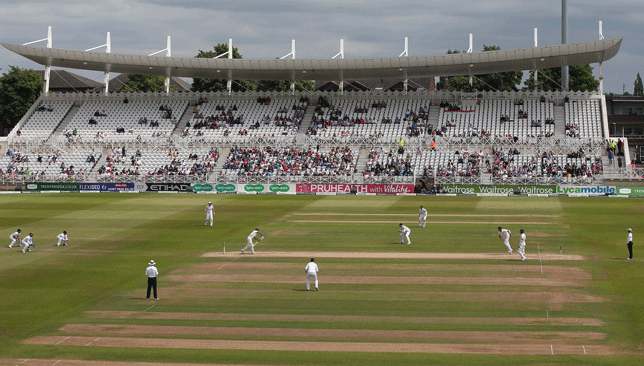
English cricket authorities faced the prospect of a $15,000 (Dhs55,000) fine after the docile Trent Bridge pitch on which England and India played out a draw in last week's first Test was rated as "poor" by match referee David Boon.
Former Australia batsman Boon's verdict, is the first time a Test pitch in England has been labelled as "poor" by a match referee and will undoubtedly add to the embarrassment felt by officials at Nottinghamshire over the sub-standard nature of their usually excellent wicket.
Boon, who played Test cricket in England during the 1980s and 1990s, oversaw proceedings at Trent Bridge where, almost from the start of the match, there were complaints about an unusually dry and lifeless surface which denied the faster bowlers their due reward.
So severe was the criticism, that groundsman Steve Birks took the unusual step of issuing a public apology.
The ICC said Boon, as per their regulations, had submitted a report to the global governing body expressing his concerns over the quality of the pitch.
This report has been forwarded to the England and Wales Cricket Board, which now has 14 days to respond.
When the ECB has responded, the ICC's general manager of cricket and chief match referee Ranjan Madugalle will consider all the available evidence, including video footage, to decide whether they agree with Boon's assessment and, if so, what penalty, if any, should be imposed under their pitch monitoring process.
The first time a pitch is rated as "poor" by the ICC, a warning and or fine not exceeding Dhs55,000 can be imposed, together with a directive for "appropriate corrective action".
However, such a judgement would not see a ground stripped of its right to stage international matches.
During the first Test, India made 457 and 391 for nine declared, while England complied 596 in its lone innings.
Both teams saw their last-wicket pairs in Nottingham involved in century stands with England's Joe Root and James Anderson putting on a Test record 10th-wicket partnership of 198.
After the first day, with India 259 for four, Birks said: "We wanted to produce a pitch with pace, bounce and carry which hasn't happened unfortunately.
"Our only instruction is to produce a good cricket wicket and, with hindsight, we may have left a bit more grass on it."
After the match, both captains said they wanted to play on more typically 'English' pitches during the rest of the five-Test series.
"I always said that when you come to a country you want to play on a wicket that is the speciality of that country," said India skipper Mahendra Singh Dhoni.
His comments were echoed by England counterpart Alastair Cook, who said: "We just need a pitch with a bit of life in it."
For the ongoing second Test at Lord's in London, it was noticeable the match was being played on a significantly greener and livelier pitch than the one at Trent Bridge.